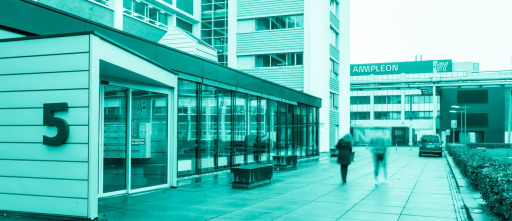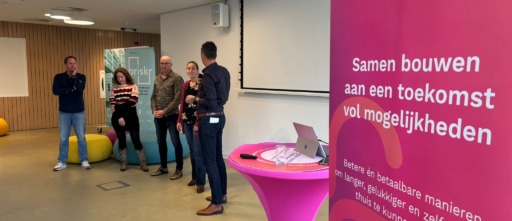MockIt: Reinventing packaging with digital twins and smart automation
Choosing the right packaging is more complex than ever. Fast-moving consumer goods (FMCG) companies juggle design, cost, compliance, sustainability and shelf appeal—often under intense time pressure. Startup MockIt tackles this challenge head-on with a smart, modular platform that streamlines the packaging journey, from product mock-up to supermarket shelf.
A platform for the entire packaging lifecycle
MockIt brings manufacturers and packaging producers together on a digital platform that automates sourcing, design, and content generation. FMCG companies can instantly compare packaging options based on cost, environmental impact, recyclability and material. It automates the packaging process, from sourcing materials and designing packaging to generating high-quality product images for e-commerce and promotions.
By using interactive 3D models, or digital twins, users can visualise and test packaging concepts before anything is physically produced. The platform offers real-time collaboration, automated content creation, and data-driven insights—all fully integrated into existing business workflows.
A need sparked by inefficiency
The idea for MockIt was born during an MBA programme, where co-founders Arjan Kolkman and Johanna Cárdenas met. Coming from startup and corporate backgrounds, respectively, they found common ground in their ambition to solve a real-world problem. “We saw that packaging development was still incredibly intensive and error-prone”, says Arjan. “What if we could automate the entire workflow, from ideation to shelf—while embedding sustainability from the start?”
MockIt’s platform addresses several industry pain points: long lead times, repetitive design tasks, high costs, and the lack of reliable environmental data. In the past, the team has created over 3,000 3D packaging models. The team includes seasoned advisors from the FMCG and retail industries. Their experiences help ensure the platform fits seamlessly into existing systems—without extra tools, training, or disruption.
Funding and traction
A strong vision only gets you so far in launching a platform like MockIt. “The startup journey is always a chicken-and-egg situation”, says Johanna. “You need traction to attract funding, and funding to create traction.” With the support of the Startupfonds Gelderland and a €100K loan, MockIt is now scaling up from an advanced prototype to a full commercial product.
The founders gained a lot of valuable experience working towards the Business Angel Network Nijmegen (BANN) event via Briskr. “Working with our coach from London helped us refine our story and sharpen our pitch deck”, says Arjan. “It was intense—early mornings, late nights—but incredibly valuable. It helped us tip the first domino, and convincing investors got easier from there.”
Built to scale, designed for integration
MockIt has always focused on compatibility. “We’re not building a standalone tool”, says Arjan. “Because big players only want smart tools that plug in and enhance what’s already there.” With GS1-compliant renders, seamless system integration, and smart automation, MockIt is already attracting attention from major brands across Europe.
The team hopes to gain more traction as manufacturers have to comply to the EU’s Product Passport requirements, expected in 2027. “Our platform provides traceable environmental data across the full packaging supply chain”, Johanna explains. “From bottle to cap or label—we’ll help users build compliant products.”
Looking towards the future
As MockIt prepares to scale, the teams focus remains on quality. “We can’t afford to spread ourselves too thin”, says Arjan. Johanna adds: “Our first customers are crucial. We want them to be our flagship cases—proof that our solution works, and that it works well.”
They also take the rapid development of AI into account for their strategy. Recently, tools like ChatGPT started generating realistic product images, but MockIt sets a higher bar. “We need full accuracy”, Arjan explains. “Our clients expect medical-device-grade precision—no missing ingredients or labels. And of course, we’re looking into how AI can support our process too.”
The role of Briskr
MockIt’s journey has been accelerated by its connection with Briskr and the regional startup ecosystem. “Through Briskr, OostNL and Orion, we got access to networks, funding opportunities, and practical support”, says Arjan. “Without that, it would have been much harder. Our advice to other startups: don’t try to do everything yourself. Build a strong network and let others help you grow.”




